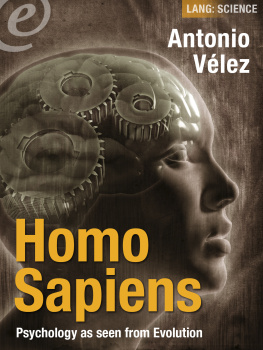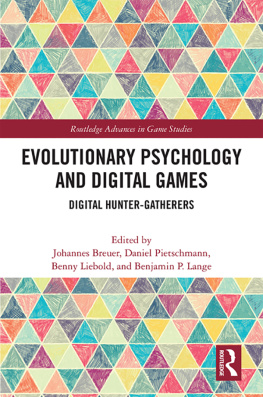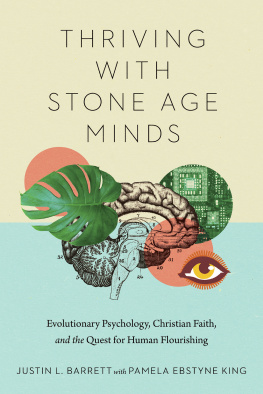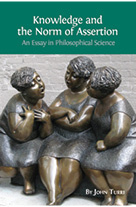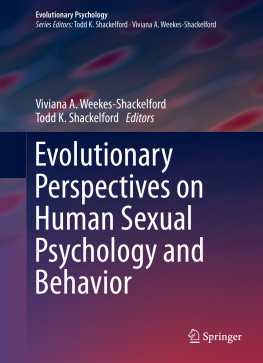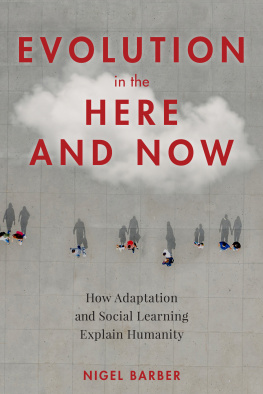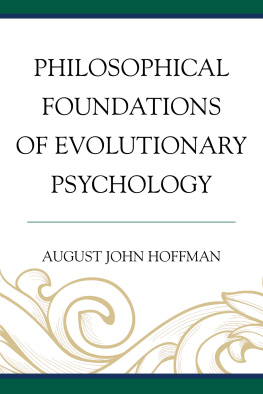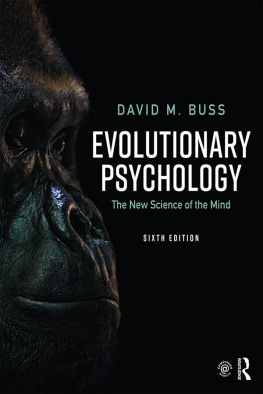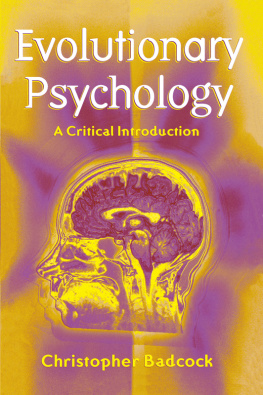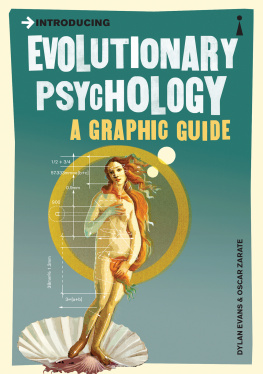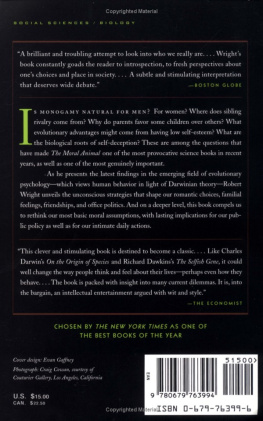
Homo Sapiens
Antonio Vlez
Categories: evolutionary psychology, science,
psychology, evolution
* * * * * *
2006, Antonio Vlez Montoya
First Edition, in Spanish,
by Villegas Editores, Bogot, 2006
2012, Translation by Kieran Tapsell
2013, eBook edition, eLibros Editorial
First Edition in eLibros Editorial, August 2013
www.elibros.com.co
Calle 74 A 22-31, of. 311
Bogot, Colombia
Tel. (571)345 0122
Email: info@elibros.com.co
ISBN 9789588732718 (epub)
ISBN 9789588732725 (azw)
All Rights Reserved. Any reproduction of parts or the whole book
is prohibited without the written permission of eLibros Editorial.
Made in Colombia
----------------------------------------------
Catalogacin en la publicacin
Biblioteca Nacional de Colombia
Vlez, Antonio, 1933
Homo sapiens [recurso electrnico] /
Antonio Vlez ; translation by Kieran Tapsell.
1st. ed. - Bogot : eLibros Editorial, 2013
p. - (Science)
Incluye datos biogrficos del autor y bibliografa -
1a. ed. en espaol. Bogot : Villegas Editores, 2006
ISBN 9789588732718 (epub) -- 9789588732725 (azw)
1. Psicologa evolutiva 2. Evolucin humana
3. Evolucin de la conductaI. Tapsell, Kieran, tr.
II. Ttulo III. Serie
CDD: 155.7 ed. 20 CO-BoBN a849195
----------------------------------------------
Contents
To Kieran Tapsell, a man who seemingly violated the sacred injunctions to selfishness that address us since early zoological times, taking on the translation of this hefty book merely for the pleasure of making it accessible to friends.
Translators Note
Homo Sapiens is one of those books, difficult to put down. I obtained a copy of it after reading a favorable review in the Colombian magazine, Semana. I kept telling my Australian friends about it but could not give them my copy to read because none of them could read Spanish. Translating it would not only give them the opportunity to read it, but would also improve my knowledge of both Spanish and biology. This provided the right recipe of selfishness/altruism, dealt with at considerable length in this book, which finally led to the completion of this English translation.
Translating is not an exact science, and it is quite a challenge to transfer the flavor and meaning over to a new language. There were times when a Colombian expression did not make any sense in English, and we had to search around for something equivalent. We sometimes succeeded and other times, had to give up. Plays on words make books entertaining, and Antonio used them liberally. But again, it was very difficult at times to reciprocate it in English. Sometimes we came close to it, but at other times, it did not work.
In the preface to his translation of Paul Valerys Le Cemetiere Marin, Nestor Ibarra wrote, My translation is infinitely perfectible, because it is the first. I first did this translation in March 2008, but a year later, I revisited it. As this book points out, Homo Sapiens has an innate desire to improve things, and I am no exception. One of the problems I found with the original translation was finding the original English text of a book cited by Antonio that he had read in a Spanish translation. For me to translate that back into English and end up with a word for word quote is clearly impossible. In such cases we agreed to use indirect speech, hoping that there had not been too much distortion in the translation into Spanish and then back again. In that twelve-month period, it was obvious that a lot more original material had been downloaded onto the internet, and this enabled me to find the original English text in almost all cases. Apart from this problem, there were other instances in the translation where I thought it could be improved in terms of both clarity, and how the language flowed. I discovered that there is a fine literary tradition in doing this. Jorge Luis Borges not only used to revise his own works between editions, but also his translations of other peoples.
So, one year after doing the original, I did a complete revision of the work and completed it in October 2009, with the help of my brother, Michael Tapsell who read over the text to point out passages that were not entirely clear or where he noticed some typographical errors. This book explains why proof reading is so difficult and I can only hope that nothing has slipped through the net. But ultimately, the responsibility for any errors is mine.
Language is always changing and it changes regionally as well. While I have tried to avoid too many Australianisms (there are only 22 million of us), it is inevitable that English speakers from other countries might detect an accent here and there. I am hoping that, like all accents everywhere, it can only add to the charm.
Homo Sapiens is truly a wonderful book. I enjoyed it immensely the first time I read it in Spanish. I enjoyed it even more when I had to live every word and to try to communicate it to others who share my native tongue. Moreover, even on the second and third reading in doing the revision, it still had not lost its magic and fascination. If knowing yourself is the secret to human happiness as the Temple at Delphi suggests, then part of that knowledge has to be about who we are as a species. This is what Homo Sapiens is all about.
Kieran Tapsell
Stanwell Park, NSW, Australia
October 2009
Prologue
This book is a journey around the human being, Homo Sapiens, examining some of his behavior and explaining him from an evolutionary point of view. It tries to use a magnifying glass to look at the so called universals of human conduct, knowledge of which today is starting to set up the new and powerful discipline known under the name of evolutionary psychology. The final product is a synthesis of ideas and results already established, coming from fields as diverse as genetics, evolution, anthropology, neurology, epistemology, cognitive sciences, ethology and of course, psychology.
By universals, we mean behavior observed in all cultural studies done by anthropologists and which appear not to depend on the particular things taught within each human group. The interesting thing about the synthesis is that it turns out that an important part of the complex collection of human behavior can be explained by a unifying principle: the direct or indirect search of the greatest number of sexual partners of the best possible biological quality; that is to say, the search for the greatest reproductive efficacy.
The miraculous magnifying glass is the Darwinian theory of evolution which gives us a refreshing look at one of the oldest problems of man, that is, the reasons for behavior, the reasons for wrong behavior, for the surprises, stupidities, and contradictions, for those things running against the current of logic and common sense. The explanation which comes out is coherent with nearly everything that can be observed in human societies. And so, much of the knowledge that psychology contributes is explained as a result of an evolutionary process, on the premise that most of modern mans desires, his impulses, interests, inclinations and mental faculties have been designed by the evolutionary process of the species to maximize reproductive efficiency.

